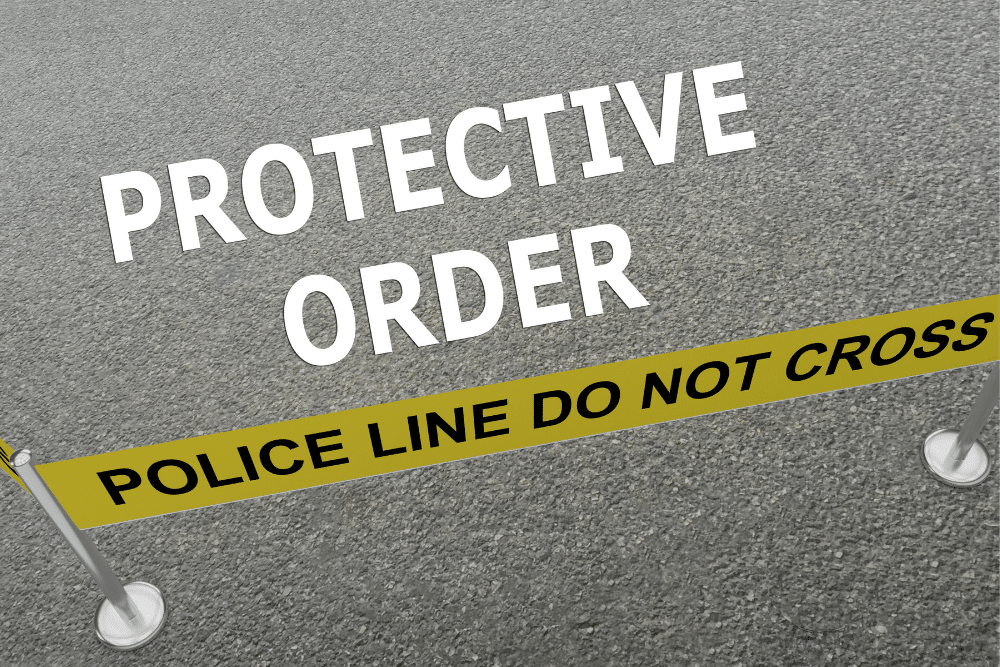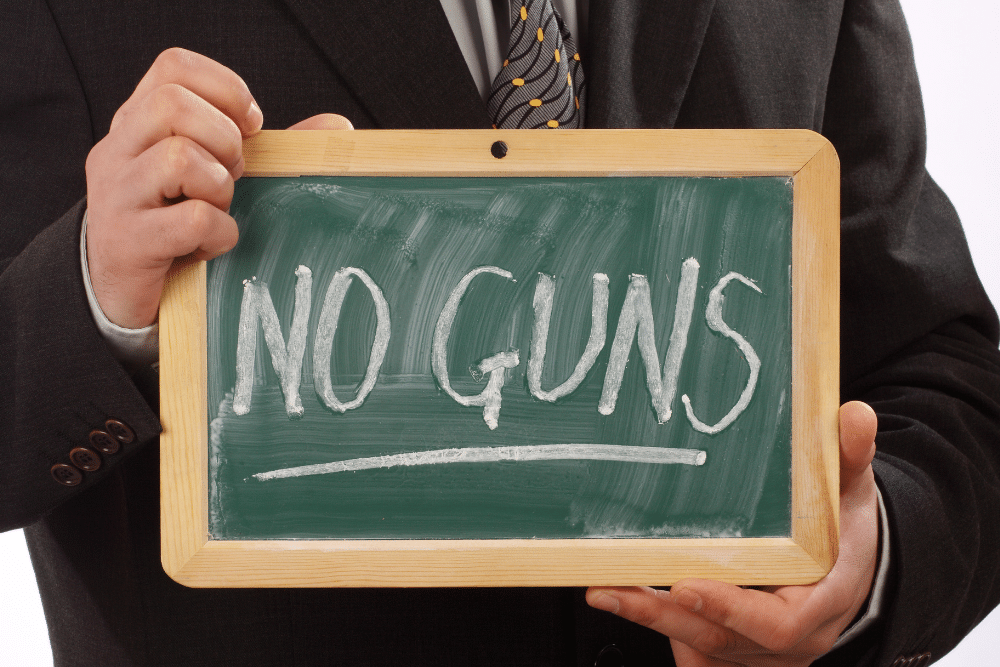If you’re under a protective order in the state of Texas, the law states that possessing a firearm is illegal. However, this is not seen in practice.
In the 254 counties that make up the state of Texas, many lack procedures to ensure those under protective orders a) don’t obtain guns or b) rid themselves of existing firearms when the order commences.
On the county level, there simply isn’t a way to surrender guns. If the firearms were collected, there’s no protocol in place for storage or return after the protective order is lifted.
Now that this problem has been uncovered, public expectations may push officials to finally deal with this very dangerous issue. Here’s what the law actually says about possessing a gun if you’re subject to a protective order and what may happen if you are found in violation.
What Is a Protective Order?

Some victims of domestic violence, stalking, or sexual assault petition the court for a protective order. In Texas, there are three types of protective orders:
Temporary Ex Parte
This temporary protective order mandates the accused to maintain physical distance from the victim, as well as a cessation of contact. It lasts until the scheduled court hearing when the judge decides on a final protective order. Ex Parte orders can cover up to 20 days.
Final Protective Order
These protective orders are put in place to keep the accused from contacting the victim in the long term. They are made to prevent harm to the victim or their children. These can last up to two years.
Magistrate Emergency Protective Order
When someone is arrested for domestic or family violence, these protective orders can be issued. They remain effective anywhere from 31 to 61 days - escalating to 91 days if a weapon was used in the commission of the domestic violence.
TX Firearm Ban
Under Texas Family Code, if you are named in a protective order, you cannot possess a firearm. This counts for any of the protective orders listed above. It is illegal for you to possess or purchase a firearm as long as the protective order is active.
Every protective order has this written directly on it. It will also outline the punishment should you violate the order. You can expect fines up to $4,000 and jail-time up to 12 months.
Additionally, it is illegal in Texas for any person convicted of a misdemeanor domestic violence crime to possess a firearm.
If you have been issued a protective order, contact local law enforcement officials. They’ll help you understand the process to surrender your firearms until the order is lifted, keeping you in compliance with the law.

Protective orders may be a major life disruption, but they do serve a very important safety purpose. If you have questions about a protective order against you, contact an attorney as your first move. It’s vital to understand your rights in the situation.
About the Author:
Brandon Fulgham has an in-depth understanding of both Texas law and Texans themselves. Before practicing law here, he received his undergraduate degree from TCU, and his law degree from South Texas College of Law in Houston. After graduation, he worked in District Attorneys’ offices as a prosecutor, building cases designed to put people behind bars. Now, he uses that knowledge to protect the rights of people in and around Fort Worth. He has been recognized for his work by Expertise (Best Criminal Defense Lawyers in Forth Worth and Best DUI Lawyers in Fort Worth, both 2020), The National Trial Lawyers, Fort Worth Magazine, and others.